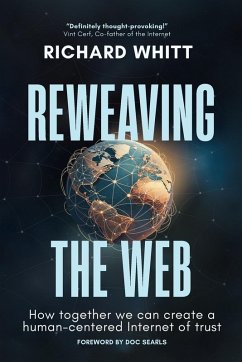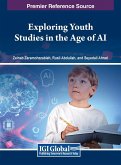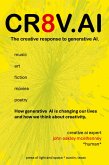What exactly is wrong with the World Wide Web? Since its inception in the mid-90s, the Web has allowed billions of people globally to connect, share information, do business, and be entertained. While online platform companies like Facebook have used the Web to provide useful services like social media, their true focus is on surveilling us, extracting and analyzing our personal data, and manipulating our behaviors. The result? A trustless online environment filled with creepy ads, misinformation, pernicious bots, and more. What, if anything, can be done to weave a new Web? In this ground-breaking book, Richard Whitt, former longtime policy attorney at Google, describes what our digital future could look like-and crucially how we can get there from here. His carefully researched analysis shows how a new profession of Net fiduciaries can serve each of us under duties of care, good faith, and loyalty. In turn, these trustworthy entities can arm us with advanced "edgetech," like authentic personal AI agents which can protect, enhance, and promote our best interests, both online and offline. This hopeful scenario need not be science fiction. Reweaving the Web lays out concrete steps that each of us can take to make that promising future a reality. "Whitt sets out an aspirational world in which digital technology becomes more helpful and less threatening. Definitely thought provoking!" - Vint Cerf, Chief Internet Evangelist, Google, and co-father of the Internet "Richard Whitt brilliantly and meticulously constructs a complete overlay of the WWW (GliaNet) that is built on trust, where each of us enjoys autonomy and agency to control our data and safely use technology to benefit humanity." - Susan Ness, former Commissioner, US Federal Communications Commission; Distinguished Fellow, Annenberg Public Policy Center, University of Pennsylvania "Whitt's Reweaving the Web starts from a place that brought me, and many of us, to the internet-that it was an open space for human creation. Underneath our current experience, there are still opportunities for creativity, autonomy, and human values. We can still create a web that serves the many and not just the few. Richard's book calls us to that-to reexamine and reimagine what we accepted as normal on the web, and to join forces in doing so." - Mark Surman, President of Mozilla Foundation
Hinweis: Dieser Artikel kann nur an eine deutsche Lieferadresse ausgeliefert werden.
Hinweis: Dieser Artikel kann nur an eine deutsche Lieferadresse ausgeliefert werden.








